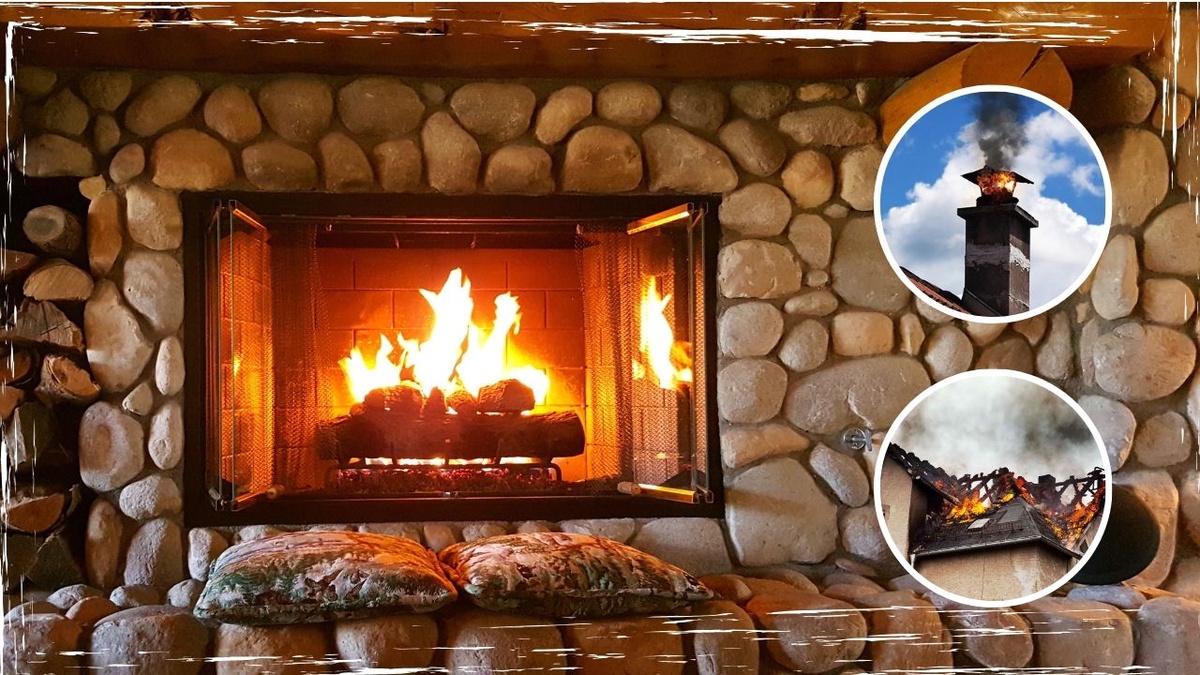Chimneys are a crucial component of homes, helping maintain indoor air quality and the safety of homes. However, neglecting its maintenance can pose significant risks, including chimney fires — a serious concern that can cause potential damage to property and occupants. Therefore, investing in an expert chimney sweep service becomes imperative to ensure your chimney works in optimal condition without compromising safety.
As a homeowner, understanding the causes of chimney fires is essential for prevention. Read our blog to explore the factors causing fires and steps you can take to prevent them. Get insights into the importance of regular maintenance. Let's commence!
Factors That Contribute to Chimney Fires
-
Creosote Accumulation
Creosote buildup, a black, tar-like substance from burning wood, is a major cause of chimney fires. It accumulates over time and becomes highly flammable when not cleaned. A single spark or prolonged high temperatures can ignite this buildup, leading to a fire.
-
Insufficient Airflow
Insufficient airflow can lead to chimney fires, as proper combustion requires oxygen supply. Inefficient burning results in more smoke and unburned particles, increasing creosote formation and eventually resulting in chimney fires.
-
Irregular Maintenance
Regular chimney maintenance is crucial for preventing fires, as many homeowners underestimate the importance of sweeping and inspection. Investing in a professional chimney sweep in Sacramento can help remove creosote buildup, identify potential issues, and ensure safe chimney operation.
-
Improper Installation
Faulty installation can result in structural issues or poor ventilation, increasing the likelihood of chimney fires. So, hire professionals for the correct installation, so you don't have to face any inconvenience.
-
External Factors/Animals Nests
Chimneys provide shelter for animals like birds, squirrels, and raccoons, but they can bring debris, creating blockages and fire hazards. Nests can trap heat and sparks, igniting nearby materials. Regular chimney inspections can help detect and remove these hazards.
Steps To Prevent Chimney Fires
-
Regular Chimney Inspections
Conduct regular expert inspections to identify underlying issues that require immediate attention. This proactive approach allows for the timely resolution of potential hazards, ensuring the continued safety of your chimney.
-
Routine Cleaning
Periodic cleaning or chimney sweep is the key to reducing the risks of chimney fires. It helps remove the creosote buildup and minimize the potential for ignition. Additionally, cleaning helps prolong the chimney's lifespan and promotes efficient operation.
-
Proper Fuel Usage
Use appropriate burning materials in your fireplace to prevent the production of excessive creosote or other harmful residues.
-
Ensure Proper Ventilation
Make sure your chimney has enough airflow. Regularly check the chimney cap to ensure it is free of obstructions or debris, allowing proper ventilation and reducing the risk of chimney fires.
-
Install a Chimney Liner
Investing in a chimney liner can help protect the chimney structure from heat and corrosion and improve airflow, reducing the risk of chimney fires.
Why Hire Professionals For Chimney Sweep?
While understanding the causes of chimney fires is crucial for prevention, the execution of preventive measures is equally important. Here's why hiring professionals for chimney maintenance is essential:
-
Expertise and Experience: Professionals have the knowledge to identify potential hazards and prevent chimney fires.
-
Specialized Equipment: Experts use specialized chimney sweeping tools to clean chimneys effectively.
-
Comprehensive Services: Professional chimney sweep includes inspections, repairs, and installation of chimney caps or liners.
-
Safety Assurance: Pros are trained in safety protocols and have proper gear to minimize risks during chimney sweep services.
-
Peace of Mind: Experts adhere to industry standards and guidelines, ensuring that your chimney is in good hands.
Conclusion
Chimney fires can result from various factors, from creosote accumulation and poor ventilation to structural flaws and outside influences. Recognizing the potential causes that can lead to fires and taking proactive steps to prevent them is essential for maintaining a safe and functional chimney. Homeowners can reduce the likelihood of chimney fires and ensure peace of mind by investing in routine maintenance and professional chimney inspections.


No comments yet